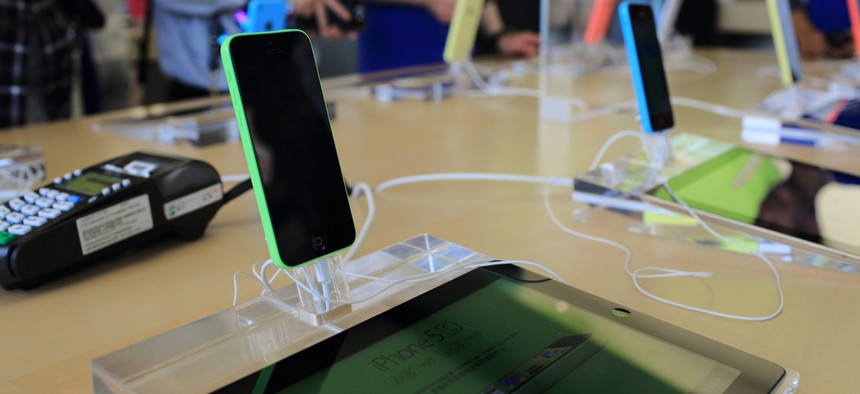Beijing Thinks the <span>i</span>Phone is a Threat to China’s National Security

An Apple store in Hong Kong displays iPhones and iPads for purchase in October. Lewis Tse Pui Lung/Shutterstock.com
The phone's Frequent Locations function, which tracks the exact places you have been and the amount of time you spent there, is capturing "extremely sensitive data," says Chinese government TV.
The iPhone became the latest target of China’s state broadcaster CCTV today. The phone’s Frequent Locations function, which tracks the exact places you have been and the amount of time you spent there, is capturing “extremely sensitive data,” a researcher told CCTV, according to Reuters. The data could ultimately reveal China’s economic situation and “even state secrets,” the researcher said.
Frequent Locations—which was added in iOS 7, the current version of Apple’s operating system—has already raised personal privacy concerns outside China, and inspired detailed online instructions about how to turn the function off. Apple says the data are used to make its mapping app more useful, and that the data are stored only on your phone and “won’t be sent to Apple without your consent.”
Even if Apple did collect the data, it’s not clear what “state secrets” Beijing thinks might be revealed. However, the state-run broadcaster issued a similar warning about Microsoft’s Windows 8 operating system last month. Analysts told CCTV that Windows presented a possible threat to national security, in part because it might collect statistics that would be “
Apple is estimated to have sold more than 150 million iPhones in China, including, presumably, to the country’s wealthiest citizens. Tracking where they travel, and how long they stay there, could be interesting data for any retailer hoping to cater to this affluent bunch—again, if Apple made those data available. But perhaps Beijing’s concern is more specific. Xi Jinping’s wife, Peng Liyuan, is just one of many members of China’s political elite who has been pictured with an iPhone, happily snapping pictures. A device that that tracks how and where the country’s most influential and powerful spend their time might well reveal a state secret or two.
(Image via Lewis Tse Pui Lung / Shutterstock.com)
NEXT STORY: Keeping tabs on costs at Interior





